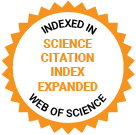Journal of Medical Internet Research
The leading peer-reviewed journal for digital medicine and health and health care in the internet age.
Editor-in-Chief:
Gunther Eysenbach, MD, MPH, FACMI, Founding Editor and Publisher; Adjunct Professor, School of Health Information Science, University of Victoria, Canada
Impact Factor 5.8 CiteScore 14.4
Recent Articles

Mobile health (mHealth) provides health information through electronic devices, even at home. The escalating prevalence of sedentary behaviors among older adults, which leads to increased adverse health outcomes, underscores the pressing need for a comprehensive understanding of the effectiveness of mHealth interventions.

Internet-based cognitive behavioral therapy for insomnia (iCBT-I) provides flexibility but requires significant time and includes potentially challenging components such as sleep restriction therapy. This raises questions about its incremental effectiveness compared to less demanding minimal interventions such as sleep hygiene psychoeducation.

The health care sector faces increasing pressure, with demand outpacing supply and multiple challenges in accessibility, affordability, and quality. The current organization of health care systems is unsustainable—exacerbated by labor shortages and escalating expenditures in Europe, particularly the Netherlands. To address these issues, hospitals are increasingly adopting digital transformation strategies. This digital transformation involves the systematic implementation of digital technologies and processes. To achieve high-quality hybrid care, hospitals must integrate digital health care seamlessly into existing workflows. However, there is no definitive strategy for implementing these transformations.

Stevens-Johnson syndrome (SJS) and toxic epidermal necrolysis (TEN) are genetically mediated life-threatening reactions that in adults are usually caused by a medication. These genetic associations promise an opportunity for pre-prescription screening, prevention, and understanding influences at a population level. Importantly, older adults disproportionally face more severe SJS/TEN reactions and higher mortality rates. However, the study of genetic risk and long-term sequelae of SJS/TEN across racially diverse populations and age groups, is hampered by many factors, including rarity, social disparities, and trust in healthcare and providers, which impact access to hospital and clinic-based research studies.

Mobile health apps (MHAs) are increasingly used in modern health care provision. The technology acceptance model (TAM) is the most widely used framework for predicting health care technology acceptance. Since the advent of this model in 1989, technology has made generational advancements, and extensions of this model have been implemented.

Global health activities (GHAs) can potentially reduce health disparities by facilitating resource sharing, promoting medical education and professional development worldwide, and enhancing collaboration among high-income countries (HICs) and low- and middle-income countries (LMICs). However, the COVID-19 pandemic disrupted in-person GHAs due to strict infection control and travel restrictions. To ensure the continuity of GHAs and further address health inequity, virtual GHAs (VGHAs) are gaining traction.

The increasing prevalence of poor mental and physical health in adults is a global health concern. Given the scope of this problem, scalable and effective treatment interventions are needed. While podcasts (online digital audio files) are becoming more popular, the extent of podcast use in mental, physical, or combined health interventions has not been reviewed.

Pharmaceutical care has expanded, with telehealth playing a key role, especially during the COVID-19 pandemic. Despite global growth, existing reviews focus on specific settings or conditions, highlighting the need for broader research on public health topics and comparative studies to evaluate the effectiveness, preferences, and cost of telehealth interventions in pharmacy practice.

Knee osteoarthritis is a prevalent, chronic musculoskeletal disorder that impairs mobility and quality of life. Personalized patient education aims to improve self-management and adherence; yet, its delivery is often limited by time constraints, clinician workload, and the heterogeneity of patient needs. Recent advances in large language models offer potential solutions. GPT-4 (OpenAI), distinguished by its long-context reasoning and adoption in clinical artificial intelligence research, emerged as a leading candidate for personalized health communication. However, its application in generating condition-specific educational guidance remains underexplored, and concerns about misinformation, personalization limits, and ethical oversight remain.

Poor data transfer and interoperability between electronic health record (EHR) systems has been a challenge hindering availability and usability of patient information in clinical practice and evidence-based decision-making. To improve data transfer and interoperability, patient information should be documented in a structured format. This also applies to medication-related patient information and results of the interventions, such as medication reviews (MRs), to individually optimize medication regimens, especially in older adults.
Preprints Open for Peer-Review
Open Peer Review Period:
-
Open Peer Review Period:
-
Open Peer Review Period:
-


















